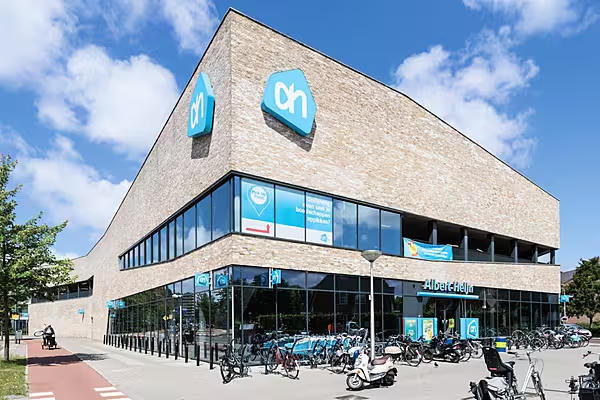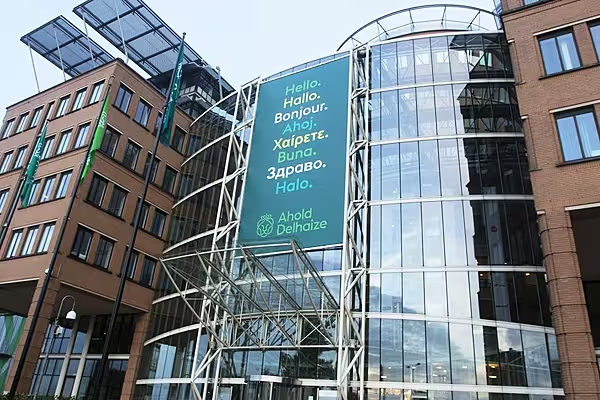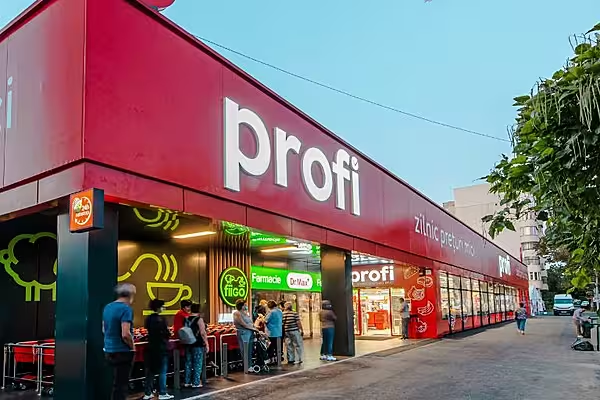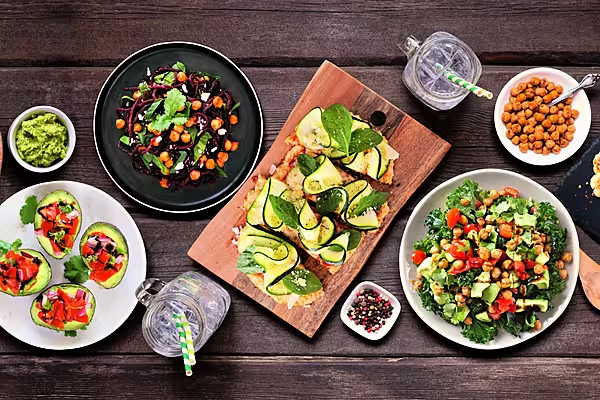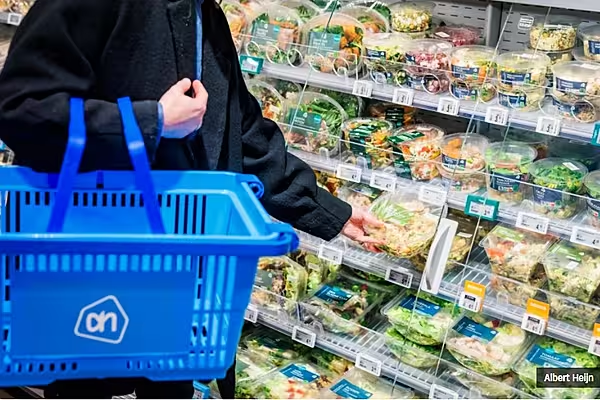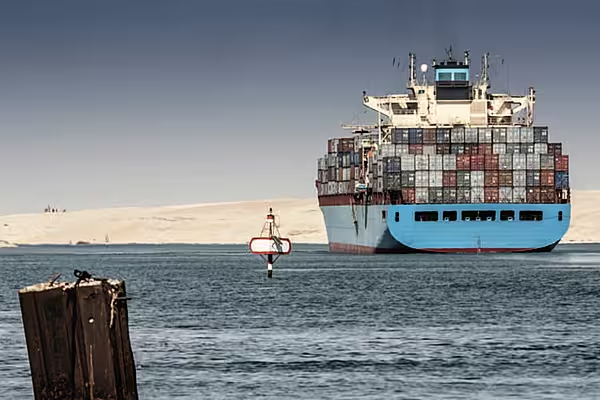With its merger now complete, Ahold Delhaize is positioning itself for the future. ESM met Wouter Kolk, CEO of the group’s European and Indonesian business. This article first appeared in ESM Issue 6, 2019.
A lot done, more to do. That seems to be the mantra at Ahold Delhaize these days. With the integration process of the two former giants of European retail (Ahold and Delhaize) completed earlier this summer, now is the time to position the newly combined business for future growth.
For Wouter Kolk, the chief executive of Ahold Delhaize’s European and Indonesian operations, this means accelerating areas such as digital integration, empowering its workforce, and investing in its customer proposition, while also encouraging each of the group’s various businesses to adopt a leadership mindset.
“We focused on the merger first – to integrate the necessary things that we needed to integrate,” the 53-year-old says of the group’s recent history. “The year 2019 was one that saw a switch of focus from completing the merger to building greater capability, and focusing on strengthening the business.”
Decision-Making
While Ahold Delhaize’s main headquarters, in Zaandam, north of Amsterdam, where our meeting takes place, is certainly impressive, Kolk points to the group’s regional CEOs in the Netherlands, Belgium, Greece, Romania, Serbia, the Czech Republic and Indonesia as being the key arbiters of the future direction of the business.
“If there’s a brand that wants to take the lead on something, they can do so, but they need to develop something that is scalable across the group. That’s the big difference,” Kolk says. “In the old days, one of the brands used to undertake a project just for themselves. That’s not the case any more. You have to have a connected, collective hat on.”
The group’s recent partnership with Hanshow Technology, which will see the development and implementation of in-store technologies, such as shelf-edge labelling and dynamic pricing, is an example of this. The technology was first introduced to Delhaize stores in Belgium, ahead of a planned pan-European roll-out.
“We are looking into how we can implement more functionality at the backend – how can we celebrate something local in a particular store on a particular day, for example,” Kolk says of the Hanshow partnership. “I think we’ve made just the first step in this journey.”
Continuous Innovation
Prior to his appointment as Europe CEO in October 2018, Kolk headed up the Albert Heijn business for four years, during which time he sought to imbue a startup mentality into operations – try quickly, fail quickly, and take anything that works to the next level. It’s an attitude that he is also seeking to implement across Europe.
“That’s where the little sparks of innovation will come from,” he says. “We have a close relationship with all the brands, and if we pick up a good innovation, particularly when it comes to digital, we make it available for everybody, in a scalable way.
“In the US, it’s different, because we’ve developed Peapod Digital Labs [the engine room for digital strategy at Ahold Delhaize US], and the brands are quite similar. In Europe, we have different countries at different stages of evolution, and with different positioning. It’s a slightly leaner approach.”
Looking To The Future
While Ahold Delhaize is experimenting with innovative technologies, such as at its new ‘plug and play’ pop-up store at Schiphol Airport, the group hasn’t gone all out in terms of developing a ‘store of the future’, which Kolk believes would distract attention away from innovation at a local level.
“Several years ago, we had a whole R&D team working on a kind of ‘future store’ concept, and we built it, in Eindhoven,” he explains. “Then, when we looked at it, we realised it didn’t really help matters, as we had been working on it for the past 18 months and the rest of the organisation had been at a standstill.
“So, instead, we have adopted an attitude of constant development and continuous innovation, so that every new store we build now has an improvement on the one that precedes it.”
How this is implemented depends on the market. In the Netherlands, for example, non-food has been taken out and replaced with fresh, while in Greece and Romania, there’s been an increased focus on service counters and food to go.
“I don’t want to sit here in head office and try to cook up what the future’s going to look like,” Kolk adds. “Let’s have everybody move in their own way and come up with winning solutions.”
Local Leadership
Kolk describes this as “local leadership” – gaining insights into the challenges and opportunities in a particular market and encouraging forward-thinking entrepreneurs to take steps to further their businesses.
“Historically, when we introduced a new concept, such as a tapas bar or something like that, we would have to ‘sell’ it to our affiliates,” he says. “For many, the question would be, ‘How is it going to help my business?’ but now, if we develop a new concept, we set out our ambition, that we want to try it in ten stores, and we want three or four affiliates to stick their neck out and demonstrate their entrepreneurial spirit. That’s the sort of attitude we have now.
“We’re also listening to our affiliates more. We’re buying more local meat, fruit and veg, and bakery products, to improve the business proposition for our franchisees. Of course, many of them have been asking for this for some time, and it’s sometimes a case of, ‘We told you so,’ but they would be absolutely right!”
Learning also abounds – geography notwithstanding – from the group’s Indonesian operations, Super Indo. While the South-East Asian operation may seem an unusual bedfellow for the rest of the group’s banners, Kolk describes it as a “great testing ground”, particularly in terms of the digital adoption of new technologies.
“There are certainly areas in which Indonesia is much more advanced than anywhere else in Ahold Delhaize,” he says, “such as how consumers are making the technological leap in terms of mobile, payments, out-of-home, delivery. Similarly, there are a lot of Asian players out there, such as Alibaba, that we wouldn’t have the opportunity to work with in Europe.”
“With all that in mind, Indonesia – and Asia in general – is a very interesting melting pot of ideas, and coupled with lower operating costs, it can give us a quicker picture of what models work and what don’t.”
Group Performance
As Ahold Delhaize’s third-quarter results indicate, the group’s European businesses, which account for around two fifths of overall group sales, offer a stable platform on which Kolk and his team can build.
Its Dutch operation saw comparable sales go up by 3.0%, with the group seeing growth in its e-commerce channels, BOL.com and AH.nl. The group is also trialling a digital-only store, similar to that of Amazon Go, at its headquarters.
In Belgium, meanwhile, which has proved to be something of a stumbling block for the business in recent years, comparable sales were up 2.0%, with the business rolling out new concepts, such as Fresh Atelier, to meet growing demand for on-the-go solutions.
Kolk is proud of the improved performance of the Belgian business, putting it down to “good old-fashioned homework. It’s about finding what you need to repair before you can focus on acceleration and expansion.
“We spent a lot of time with Xavier [Piesvaux, CEO of Delhaize Belgium] and his team, looking at what we can fix now and what we can fix later. Sometimes you take three steps ahead, and then you have to take two steps back because you discover something else that needs to be fixed. Things are going well; we are optimistic about our position in Belgium.”
The group’s Central and South-Eastern Europe division is more of a mixed bag, however, with strong performances in the Czech Republic and Romania offset by continued challenges in Greece, where Lidl has perhaps tapped into the changing consumer mindset better than Ahold Delhaize’s Alfa-Beta Vassilopoulos.
“In Greece, the fundamentals of the business are very strong, but suddenly, they are facing new competition that they have to act upon,” says Kolk.
“Their old USPs, where they are really strong on assortment and quality and local, suddenly became less appealing, so they have had to reset their customer value proposition, their pricing, their promotional intensity. The dynamics of any market are always changing, and you have to respond to that.”
Profit And Loss
As Kolk admits, he and his team have spent some time examining the performance curve that retailers experience over the years, and why success and failure go hand in hand as time progresses.
“We could actually spend an evening over a glass of wine, having a debate about this,” he says. “Sometimes, perhaps, leaders stay too long in a particular role, and you need to bring in new leadership quicker.
“But I believe that our brands have insight into the market dynamics in all the markets in which we operate.
“They are local, they can see what the competition is doing, and they can read the early signals as to where things need to be improved. So, we need to make sure all our teams have that agile, innovative mindset for change, and have the confidence to deal with that change.”
© 2019 European Supermarket Magazine – your source for the latest retail news. Article by Stephen Wynne-Jones. Click subscribe to sign up to ESM: The European Supermarket Magazine
